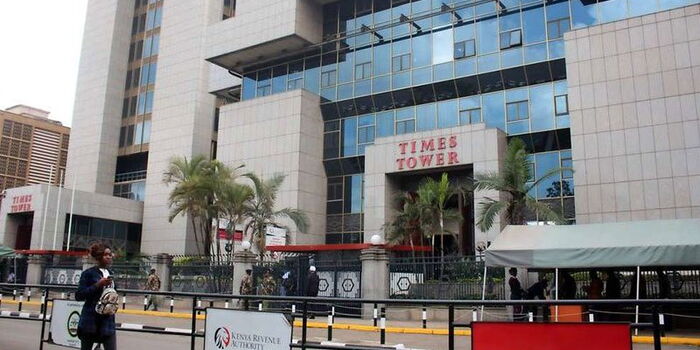
New Financing to Address Fiscal Pressures and Accelerate Inclusive and Green Growth
Washington, May 30, 2024 — The World Bank has approved new funding to help Kenya address short-term fiscal pressures and simultaneously accelerate a more prosperous, green, and inclusive future.
The new $1.2 Billion Kenya Fiscal Sustainability and Resilient Growth Development Policy Operation (DPO), the first in a series of three, has been prepared under an improved macroeconomic environment following government action to address the challenges that had overshadowed the economy including tight liquidity pressures, depressed investor confidence and limited capital inflows that had resulted in a rapidly depreciating shilling.
“The policy dialogue around this DPO has helped to strengthen the macroeconomic framework, sustain an ambitious fiscal consolidation path, and tighten monetary policy,” said Keith Hansen, World Bank Country Director for Kenya. “After tackling the immediate fiscal pressures, the focus can now shift to addressing the country’s longer-term challenges.”
The DPO will support policy and institutional reforms to (i) address structural constraints in Kenya’s public finances, alleviate fiscal pressures and promote a more efficient and sustainable budget; (ii) foster more competitive and inclusive product and labor markets; and (iii) strengthen climate action, building on Kenya’s strong leadership under the 2023 Nairobi Declaration on Climate Change.
Key reforms include the establishment of a Treasury Single Account, wage bill consolidation, a modernized and enhanced social protection system, removal of county-level distortions through the fragmented licensing systems, opening of the ICT sector for more foreign investment, and provision of better access to services and jobs to refugees. On climate, the DPO will support Kenya’s ambitions on green public transport, increasing forest cover, and leveraging climate finance, including through carbon credits and green and sustainability-linked bonds.
“For Kenya to return to moderate risk of debt distress, the government will need to maintain the fiscal consolidation path, promote export growth, enhance the country’s policy and institutional assessment to increase its debt carrying capacity and proactively manage liabilities by focusing on concessional financing to reduce interest costs and repayment pressures,” said Naomi Mathenge, World Bank Senior Economist for Kenya.
Climate is symbiotic with the development agenda promoted in this DPO, as it strengthens adaptation through an improved social protection system, improved public services and jobs for Kenya’s 550,000 refugees, as well as increased forest cover. The DPO also leverages the climate mitigation agenda to support Kenya’s ambition to be a global climate leader, while tapping green financial resources for climate action and development.
The DPO is anchored in the priorities laid out in the Government of Kenya’s Bottom-up Economic Transformation Agenda and the World Bank’s FY23-FY28 Country Partnership Framework for Kenya and complements the broader World Bank portfolio in Kenya.
This $1.2 billion Development Policy Operation is funded through a combination of financial instruments, including an International Bank for Reconstruction and Development loan of $850 million, an International

KRA Warns of Penalties for Kenyans Who Fail to File Taxes by Today
The Kenya Revenue Authority (KRA) has urged Kenyans who are yet to file their taxes to do so before the lapse of the deadline set for February 20, 2025.
In a brief notice on Thursday afternoon, the Authority announced huge penalties for Kenyans who would fail to remit their tax payments by today midnight.
KRA went ahead to list five taxes whose deadlines are due today, including the Value Added Tax (VAT). VAT is an indirect tax that is paid by the person who consumes taxable goods imported.
According to KRA, any person supplying or who expects to supply taxable goods with a value of Ksh5 Million or more in a year is required to pay VAT at the rate of 16 per cent.
The Authority also called on Kenyans to file their Turnover Tax (TOT) and the Monthly Rental Income (MRI) tax, whose deadlines are also due today at midnight.
Turnover Tax is levied on businesses whose gross turnover exceeds Ksh1,000,000 but does not exceed, or is not expected to exceed, Ksh25,000,000 during any year of income.
As per the Finance Act 2023, which became effective on July 1, 2023, Turnover Tax is payable at a rate of 3 per cent of gross sales and must be remitted by the 20th of every month.
Additionally, Kenyans were urged to promptly remit their Digital Service Tax (DST) and the Value-Added Tax on Digital Marketplace Supply, whose deadlines are set to elapse soon.
Kenyans seeking to file any of the five taxes were advised to visit the KRA portal, where they will be required to log into the system and file the necessary tax returns.
“Today is February 20, 2025, the deadline to file and pay the following taxes: Value Added Tax (VAT), Turnover Tax (TOT), Monthly Rental Income Tax (MRI), Digital Service Tax (DST) and Value Added Tax on Digital Marketplace Supply. Avoid penalties by filing and paying on time! Get started via itax.kra.go.ke/KRA-Portal," KRA announced.
As per the regulations, any Kenyan who fails to remit VAT risks a penalty of Ksh10,000 or 5 per cent of the tax due, whichever is higher. Non-remittance of Turnover Tax attracts a similar penalty.
Non-payment of Digital Service Tax, which is a tax payable on income accrued from services offered through a digital marketplace, attracts a penalty of 1.5 per cent of the gross transaction.